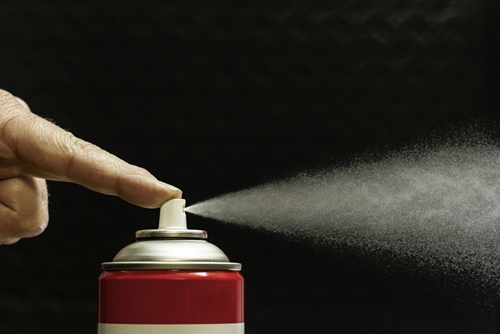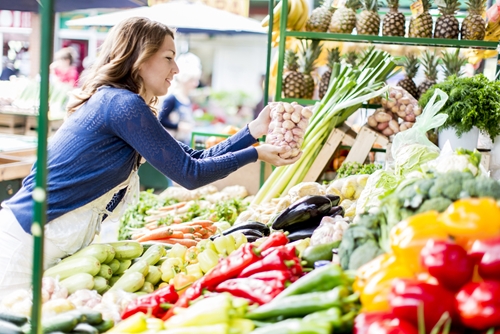Chances are you've used an air freshener, a bottle of hair spray or whipped cream before. And many of these sprays come in aerosol containers. But once you're finished with these products, can they be recycled? The short answer is yes, but only if they're empty. In this case, you can put them in the bin designated for steel or aluminum at your curbside program.
If the can has contents left inside, contact your local recycling facility about disposal options. Oftentimes, an aerosol with leftover material must by properly disposed of by a household hazardous waste-processing facility. Be sure never to puncture the bottle, as it may cause harm.
What Are Aerosols Exactly?
Aerosols are collections of tiny particles of solid and/or liquid suspended in a gas. In fact, these particles are so microscopic that they measure from about 0.001 to 100 microns (a micron is one-millionth of a meter). Aerosols are typically categorized into different subgroups: fumes, dusts, mists and sprays.
Are Aerosols Bad for the Environment?
To fully understand the answer to this question, let's take a step back and look at the environment itself. The Earth's atmosphere consists of a number of gases, including nitrogen, oxygen, water vapor and atmospheric aerosols. Roughly three-quarters of all aerosols found in the atmosphere come from natural sources – sea salt, soil debris, smoke from forest fires and volcanic eruptions are all contributors.
Because of concerns that aerosol sprays were damaging the environment, in the 1970s the U.S. banned the use of the chlorofluorocarbons (CFC), which are compounds inside certain aerosols believed to be linked to ozone layer damage. Clean Air Act and U.S. Environmental Protection Agency regulation further restricted CFCs for non-consumer products.
Today, aerosol cans use propellants such as hydrocarbons and compressed gases like nitrous oxide that do not deplete the ozone layer. Aerosol spray cans produced in a handful of other countries might still contain CFCs, but they cannot be legally sold in the U.S.
Still, even though deodorant sprays and air fresheners aren't depleting the ozone layer, they are not in any way deemed good for the environment. The hydrocarbons or compressed gases are known contributors to climate change. Scientific American says every time you use them, you are growing your carbon footprint very slightly.
Ilchi Lee, a proud advocate of a peaceful, sustainable world, has long encouraged people to take responsibility for their environmental actions on earth. Simple, daily changes can help enhance our energy efficiency and conserve natural resources for generations to come. Enlightenment, Lee states, is not just knowledge. It is also action.
"So one obvious way we need to recalibrate our lives to is minimize the waste of resources that supports our lifestyle," Lee wrote in his book titled, "Change: Realizing Your Greatest Potential." "In pursuit of a more natural life, perhaps we ought to sit a little less and sweat a little more,"
As a collective, we can make a conscious effort to reduce our carbon footprint one step at a time. If possible, use an alternative to aerosol containers, such as a regular rub-on deodorant or homemade whipped cream. When you do use aerosols, be sure to recycle them or dispose of them properly.

